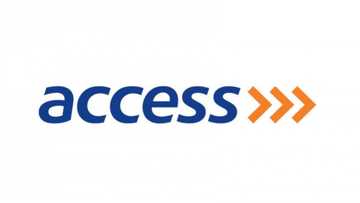Four Nigerian-Owned Startups That You Don’t Know Are Non-resident Companies, and Why
- Some of the most popular tech startups in Nigeria are regarded as non-resident companies, as they are domiciled outside the country
- Flutterwave, which is the only Nigerian unicorn startup, is headquartered in San Francisco, United States, where two others are located
- These companies are located outside Nigeria due to three factors that have affected many other Nigerian-based startups
Nigeria is home to about 750 startups, the highest in Africa, however, the most popular ones are just mere branches or what you call permanent establishment (PE) despite having a Nigerian or Nigerians as founders.
Although, not all the startups are founded by a Nigerian, so it is understandable when a foreign-owned tech startup like Jumia prefers to domicile its headquarters in Germany, despite having market exposure through Nigeria and other African countries.
But why would a Nigerian founder want to situate its main operational office outside the country, and become a foreign entity or non-resident company or a branch in Nigeria? - this is what this article will answer.

Read also
POS boom: The new banking that caused Union Bank to close branches, Standard Bank to stop building

Source: UGC
Difference between having a branch or headquarters for a government
In case you don't know, there's a huge difference in a country housing a branch and the headquarters of a country - the latter is more profitable, while the former, well, less profitable when both are compared.
Do you have a groundbreaking story you would like us to publish? Please reach us through info@corp.legit.ng!
In Nigeria, non-resident companies are taxed on their income sourced within the country, while resident companies, registered under the Companies and Allied Matters Act, are subject to corporate income tax (CIT) on their global income.
Companies that fall under the Corporate tax generates more than N100 million, out of which 30% goes to Nigeria's CIT - but that's not the only thing that makes housing a headquarter attractive, as many companies are now slashing their CIT to lure in corporations; an example is United States CIT rate cut to 25% from 31% in 2018.
Housing a head office of a company is a thing of pride for many governments, as they get to use their names to attract more corporate headquarters, and avoid capital flight out of their country - a situation MTN Nigeria found itself when the telco exported $12 billion back to South Africa, its parent company's home between 2006-2016; an amount former lawmaker, Dino Melaye, described as about half of Nigeria's external reserves in September 2016.
So the area of a headquarter is considered as a business's most important location as it serves as the financial centre of the firm, and it helps the state or country boost talent acquisition, infrastructure development.
But note that where a company is incorporated as a legal entity doesn't necessarily dictate its headquarters.
Nigerian-owned startups headquartered outside the country
They have a significant economic presence in Nigeria, either through their permanent establishment or digital footprint, but they don't call this country home.
Legit.ng understands that the non-resident Nigerian-owned startups are clustered in the United States, preferably San Francisco in California, which is no.8 in the top ten states to start a small business in the US.
California is the home of startup heaven, Silicon Valley, and attracts the most venture capital according to Balancingeverything, and it is said to have 80% high early survival rate.
Despite situating their headquarters in western countries, the Nigerian-owned startups are pan-African businesses, using Nigeria as its gateway into the larger Sub-saharan African market - similar to what Twitter did with Ghana HQ2, but aiming for Nigerian customers.
Below are the Nigerian-owned startups
Flutterwave
The most famous is Flutterwave, Nigeria's first unicorn, and a billion-dollar worth startup co-founded by Iyinoluwa Aboyeji and Olugbenga Agboola - both of whom are Nigerians.
Flutterwave provides payment option for digital transactions of 290,000 plus businesses on its platform, and it played a pivotal part in the EndSARS protest in October 2020. It is located in San Francisco.
Since its establishment in 2016, both Aboyeji and Agboola have raised about $234.7 million after conducting 13 fundraisings to secure capital for their business growth - Insight Partners, Tiger Management Corporation, Greycroft, Avenir Growth Capital are some of the 43 investors that have funded Flutterwave.
Future Africa
This startup operates differently, but it is co-founded by Iyinoluwa Aboyeji, who also co-founded Andela Nigeria. Future Africa is a startup's go-to for fund, as it positions itself as a deep pocket for entrepreneurs in need of capital to build their innovation.
Just like Flutterwave, Future Africa's headquarters is domiciled in San Francisco, but has made capital investment in 18 African startups, with the latest being $100,000 in Sety.
Future Africa is a collective of numerous investors. According to the company;
"For a $1000 annual or $300 quarterly membership subscription, you can invest a minimum of $2,500 per deal with the Future Africa Collective."
Patricia
Since the beginning of Nigerian reality show, Big Brother Naija "Shine Your Eyes" edition in July, Patricia's popularity among Nigerians have grown, due to it being a major advertiser.
Founded by Hanu Fejiro Agbodje, Patricia in Nigeria for about four years before the startup was forced to relocate to Estonia, after the Central Bank of Nigeria (CBN) banned cryptocurrency exchanges from operating in the country.
Patricia has 660,000 plus registered user accounts and services 10 countries with 10,000 daily active users and 30,000 plus daily transactions.
Paystack
Paystack was founded by Ezra Olubi and Shola Akinlade. The payment startup is one of the most notable names in the Nigerian tech market, but it is domiciled in San Francisco.
It also operates a pan-African business, with 50% of Nigerian online payments done through Paystack, with the aid of 60,000 plus customers using its online and offline payment system, as claimed by the company.
Since expanding to Ghana, Paystack has grown and claims to power 50% of all online payments in Nigeria with around 60,000 customers.
Why these startups locate headquarters outside Nigeria
Political uncertainty/Tax policies
While Nigeria has been practising democracy for 57 years, its institutions are not independent, and they are swayed by the party in power, causing political interference in the private sector.
Also, there are uncertainty surrounding tax policies, as a change in government usually leads to change in status quo, throwing startups into a dilemma as uncertainty hangs over their future.
This led to the end of bike-hailing firms in Lagos state, and the ban of cryptocurrency exchanges in Nigeria. Financial Times’ fDi Intelligence had ranked Nigeria sixth on the top tech markets in Africa 2020.
Among the factors blamed for this low rank is government policies, and South Africa, Kenya, Egypt, Ghana, Tunisia, were all ahead of Nigeria on the list.
The most recent controversial policy is the NITDA bill which seeks to receive 1% levy of profit before tax from tech startup with N100 million annual turnover - defaulters will face jail term and a fine.
Flutterwave co-founder, Aboyeji, succinctly put in words last month during a Twitter rant:
"If you are a tech company operating in Nigeria you should definitely have a detailed ‘if the government bans our business plan’ as part of your strategy. So important.”
Adding that:
“But anyone who thinks the politicians will stop attacking the industry despite appeals is living in Eldorado. You are just negotiating with the taliban.”
The only tax benefit for startups in Nigeria is for small businesses grossing N25 million or less as turnover, and they are charged 0% CIT.
Market conditions
From day one, any Nigerian-based company is operating at a competitive disadvantage considering the high cost of doing business within the country.
World Bank’s Cost of Doing Business index in 2020, stated that it cost at least $221.84 to start a business in Nigeria when compared to other West African countries, Cameroon ($126.33), Ghana ($125.46), Togo ($56.51), Benin ($32.32).
Nigeria's cost of doing business is also higher than that of South Africa ($12.66), Egypt ($12.73), but below another arch-rival country, Kenya ($352.93).
The cost comes with lack of infrastructure, which Financial Times’ fDi Intelligence noted in its report about Nigeria. The country also lacks electricity, with companies and households depending on alternative power supply.
Legit.ng understands that the business climate in Nigeria is not favourable to the survival rate of startups in Nigeria, reason why Aboyeji had stated that it is best to operate in Nigeria from the outside.
It was gathered that 61% startups in Nigeria fails in ten years, between 2010 to 2018, as Weetracker's The Better Africa report - so the market conditions affect the ability of a startup to take risk and gross within its market.
Closer to venture capitalist
Locating their headquarters outside of Nigeria gets them closer to the heart of Venture capitalist. They are more valuable and finds it easier to source for funds from foreign VC.
For instance, the highest fundraising by a Nigerian-owned startup is $170 million by Flutterwave, while the highest investment by a Nigerian-based startup is $400 million by a foreign-owned firm, OPay.
Location of headquarters often matters in deals, while it increases access to capital, it also assures investors their investment will not be fully exposed to political interference or tax policy uncertainty, and example of such risk is the bike-hailing firms and crypto exchanges who had raised funds before they were forced out of the market.
Tech startup founders who made billions from Nigerian problems
Nigeria is a complex society with numerous problem, and this situations have become a million-dollar venture for some Nigerian tech founders.
Appzone, Flutterwave, Cars45 and Kwik Delivery are some of the companies that have taken advantage of the challenges faced by Nigerians to earn a living.
These startup founders include Iyinoluwa Aboyeji, Romain Poirot-Lellig, Etop Ikpe, Obi Emetarom.
Source: Legit.ng




